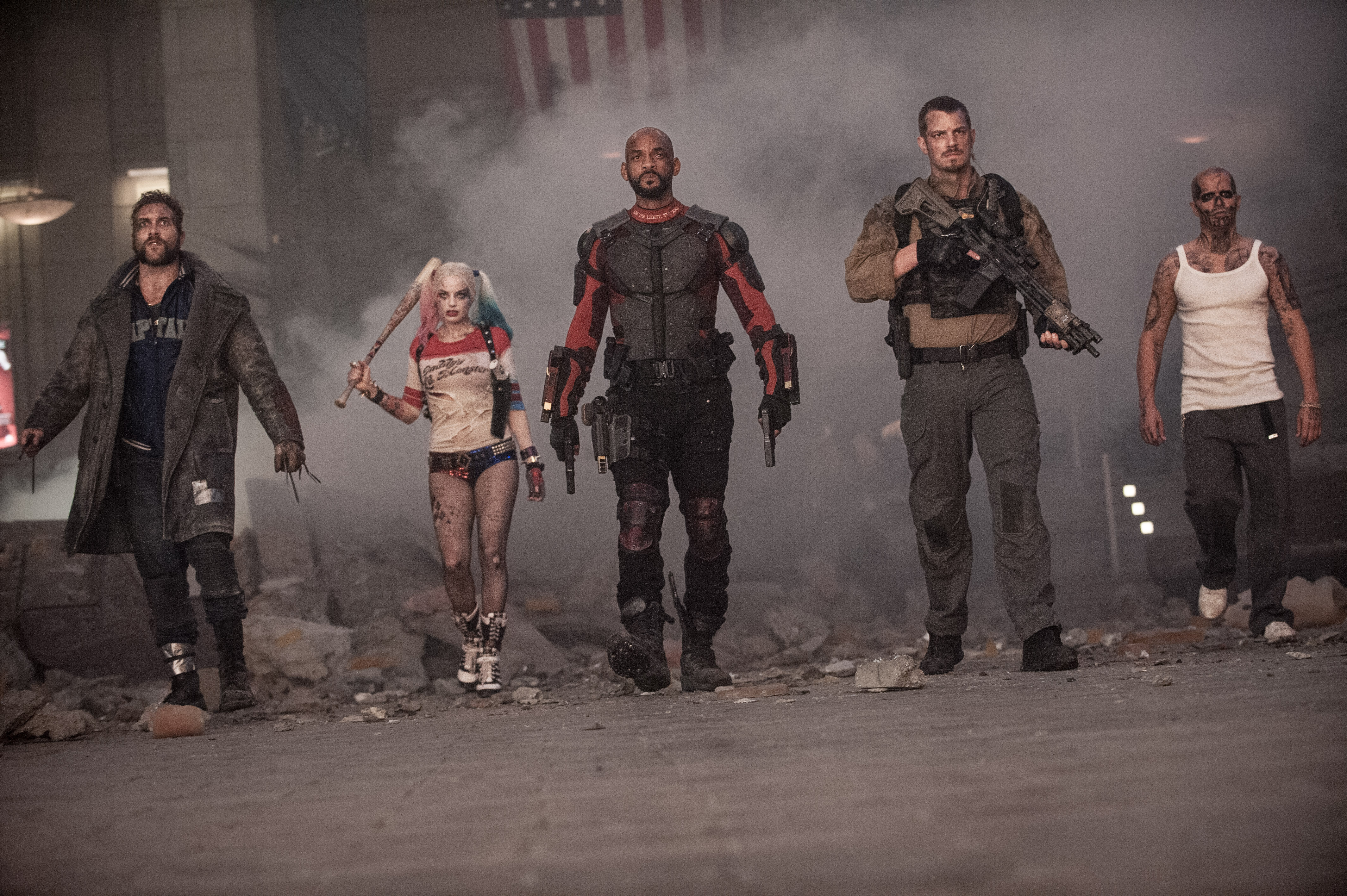Will Smith stands in front an undead enchantress in a climactic scene of the highly anticipated Suicide Squad. Smith plays Deadshot, a bad guy assassin who’s now somewhat of a good guy. He stands with his crew of other bad-turned-good guys, the titular squad, in the face of Cara Delevigne’s world-dominance-seeking villain. Smith speaks.
“Lady?” he says in full Will Smith movie star mode. “You are evil!“
What is that? It’s not a very serious line and it sure as hell isn’t funny, right? The tone and purpose of such a late-action script item eluded me at the time and that hasn’t changed in the days since. It still seems pointless and, above all, confusing. But hey, so does the rest of the movie.
Confusion is what I felt most during Suicide Squad. My thoughts were unclear not only about the many individual empty utterances such as the previous one, but also about the bigger picture of what has happened here in terms of how disappointing and straight-up bad this movie is.
This is the type of film that carried strong enough hype and a big enough budget to make it a can’t-miss for its creators (in this case, Warner Brothers). So how could so many people have watched cut after cut and eventually agreed that this was a finished product good enough to serve not only an American public, but one that had built up a sizable appetite for it? It’s just hard to imagine the higher-ups at Warner Bros or even director David Ayer watching this movie and saying “Yep, looks good!”
We all saw the fantastic trailers (the first of which dropped in what seems like 2007 and was so good it was one of the main reasons I took this review) and we all know the general plot: The government takes the worst of the worst criminals and throws them together to fight evil. Smith, who is not awful in this movie despite the brain-dead script, is joined by a team featuring a wide range of talents: bright spot Margot Robbie as the wild Harley Quinn, Jai Courtney as the laughably Australian Boomerang, Jay Hernandez as the walking stereotype Diablo and Adewale Akinnuoye-Agbaje as the useless Killer Croc. Jared Leto hangs out on the periphery of the plot as a delightfully unpredictable Joker. The squad’s mission is to take out Delevigne’s enchantress whose motives aren’t super clear, but she surely wants to kill everyone. Honestly, this plot synopsis paragraph is pretty vague but so is the plot of this film.
The shortcomings of Suicide Squad can be summed up by two moments that are often highlights of a typical superhero movie: the swelling of music as our heroes prepare to embark on some great task and the comic relief that comes from a one-liner interjected at just the right second amid the chaos of saving the day. We all know these moments and we love them. They both make us feel something — goosebumps for the first scenario or the release of laughter for the second. But in Ayer’s film, there is a wild greed for these moments, a belief that these tropes are the key to being loved. The movie’s desire to capture that love is so strong it ultimately drives the whole thing mad.
Suicide Squad takes these types of past delights, things that have made superhero movies good in the past, throws some explosive action and big names and a few crazy special effects into the mix and calls it a day. It tries to be all highlights with no real transitions or plot development in between. None of these usually great moments are earned or built toward and they come about so often that we’re numb to their sensations 20 minutes in. For the rest of the two-hour run time it’s hard to feel anything other than impatience. It’s like if a sports movie were made up of only championship game scenes over and over again. After a while, you don’t give a shit whether the team wins State or not.
In the days since reviews about as positive as this one first hit the web, there have been reports about the movie’s rushed, messy production. Ayer, a director that often has a wonderfully gritty vision, reportedly had his ideas for the movie come into direct conflict with the studio and the result is a film that tries to reflect what both sides wanted. Instead of a beautiful compromise though, what viewers receive is the mud from a piece of land that’s been torn up by an intense game of tug-of-war. It seems that, once again in the world of blockbusters, the conflict between the minds of those trying to create art and the minds of those seeking only to make money has produced a flick so bad that nobody wins.
Having said all that, this is the part where I concede the fact (and admit to myself) that Suicide Squad will probably still have a monster opening weekend. America loves superheroes. There will certainly be die-hard fans of this movie that will lash out against reviews like this one. And sure, this movie’s explosions and effects and glitz can all be legitimately enjoyed. But there’s no doubt there should and there will be a voice in the back of their heads, all of their heads, that tells them they deserved better. They deserved a better movie than this. The question is how loud that voice will be and whether they’re willing to listen to it.



